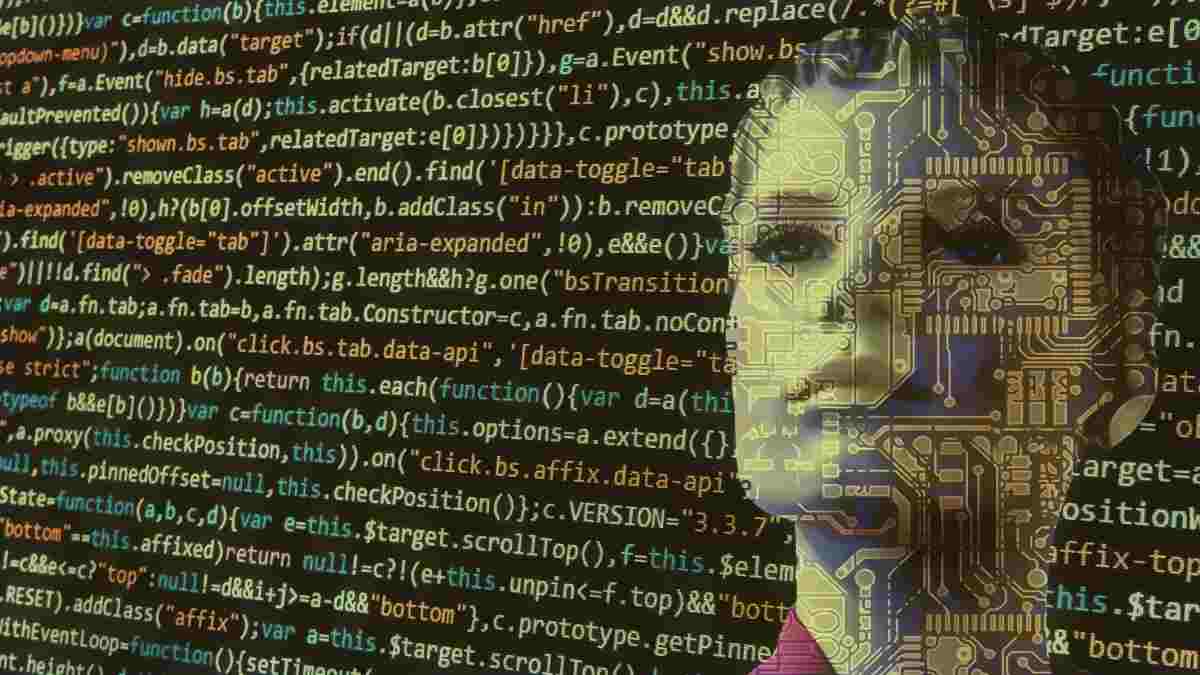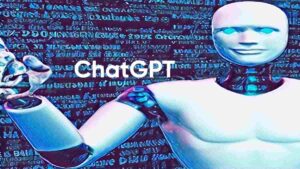Introduction to AI: What is Artificial Intelligence & how does it work?
AI, or Artificial intelligence, refers to the ability of a machine or computer system to perform tasks that would normally require human intelligence, such as recognizing patterns, learning from experience, and problem-solving.
Artificial Intelligence can be divided into two main categories: narrow or weak AI, which is designed to perform a specific task, and general or strong AI, which has the ability to perform any intellectual task that a human can. Narrow AI is the more common type and can be found in many everyday applications, such as virtual assistants and recommendation algorithms.
Artificial Intelligence systems are trained using large amounts of data and algorithms, which enable them to recognize patterns and make decisions based on that data. For example, a machine learning algorithm might be fed thousands of images of cats and dogs, along with labels indicating which is which. The algorithm would then use that data to learn how to identify a cat or dog in a new image.
There are many techniques used in Artificial Intelligence, including machine learning, natural language processing, and robotics. Machine learning involves training a model to make predictions or decisions based on data input, while natural language processing allows computers to understand, interpret, and generate human language. Robotics involves the design and use of robots for tasks that would normally be performed by humans.
The use of Artificial Intelligence has the potential to transform many industries and has already made a significant impact in fields such as healthcare, finance, transportation and education. However, there are also ethical concerns surrounding Artificial Intelligence, including issues of bias and job displacement, which need to be carefully considered as Artificial Intelligence continues to advance.
History of AI: A brief overview of the development of Artificial Intelligence, including key milestones and breakthroughs
The history of Artificial Intelligence can be traced back to the 1950s, when researchers first began exploring the idea of creating intelligent machines. One of the earliest milestones in the field was the development of the Turing Test by Alan Turing in 1950. The Turing Test is used to assess a machine’s ability to display intelligent behavior that is similar to or indistinguishable from that of a human.
In 1956, a group of researchers at Dartmouth College held a workshop to explore the possibility of creating intelligent machines. This workshop is often considered the beginning of the field of Artificial Intelligence as we know it today.
Throughout the 1960s and 1970s, Artificial Intelligence research made significant progress, with the development of expert systems, which were designed to mimic the decision-making abilities of a human expert in a specific domain. However, Artificial Intelligence also faced setbacks during this time, known as the “AI winter,” due to overhyped expectations and limited progress in the field.
In the 1980s and 1990s, Artificial Intelligence experienced a resurgence, thanks in part to the availability of more powerful computers and the development of machine learning algorithms. This led to the creation of practical applications of Artificial Intelligence, such as the development of self-driving cars and the widespread adoption of virtual assistants.
In the 21st century, Artificial Intelligence has continued to advance rapidly, with the development of deep learning algorithms and the widespread use of Artificial Intelligence in industries such as healthcare and finance. Some experts predict that Artificial Intelligence will eventually surpass human intelligence, leading to the possibility of super intelligent Artificial Intelligence.
Overall, the history of Artificial Intelligence is marked by significant milestones and breakthroughs, as well as setbacks and challenges. Despite the challenges, Artificial Intelligence remains a promising and rapidly developing field with the potential to transform many aspects of our lives.
Types of AI: An explanation of the different types of Artificial Intelligence, including narrow or weak, general or strong, and super intelligent AI
There are multiple types of Artificial Intelligence, each with its own unique features and abilities. Here is an overview of their types:
- Narrow or weak AI: Also known as “limited” or “applied” Artificial Intelligence, narrow AI is designed to perform a specific task or function. It is trained to perform that task using data and algorithms, but it is not able to perform other tasks outside its specific domain. Examples of narrow AI include virtual assistants, such as Apple’s Siri or Amazon’s Alexa, and recommendation algorithms used by streaming services or online retailers.
- General or strong AI: It is also known as “artificial general intelligence,” is a type of Artificial Intelligence that has the ability to perform any intellectual task that a human can. It is able to understand or learn any intellectual task that a human being can, and is not limited to a specific domain or task. While strong Artificial Intelligence has not yet been achieved, it is a goal of many Artificial Intelligence researchers and the subject of much speculation and debate.
- Super intelligent AI: It refers to a hypothetical type of Artificial Intelligence that is significantly more intelligent than the best human minds in almost all domains, including scientific creativity, general wisdom, and social skills. Some experts believe that the development of super intelligent AI could bring about significant changes to society and the potential for both positive and negative impacts.
It’s important to note that the distinction between these types of Artificial Intelligence is not always clear-cut, and there can be overlap between them. For example, a virtual assistant that is designed to perform a specific task, such as answering questions or setting reminders, could potentially be considered both narrow and strong AI, depending on how it is designed and used.
Applications of AI: Examples of how Artificial Intelligence is being used in various industries
The use of Artificial Intelligence could significantly transform many industries and is already being utilized in various applications. Here are some examples of how Artificial Intelligence is being used in various industries:
- Healthcare: Artificial Intelligence is being used in healthcare to analyze medical images, predict patient outcomes, and assist with diagnosis and treatment planning. For example, Artificial Intelligence algorithms can be trained to analyze medical images, such as X-rays or MRIs, to identify signs of disease or abnormalities. Artificial Intelligence can also be used to analyze electronic health records and predict patient outcomes, such as the likelihood of developing a certain condition or the likelihood of a patient responding to a particular treatment.
- Finance: Artificial Intelligence is being used in the finance industry to analyze large amounts of data, identify trends and patterns, and make predictions about market movements. For example, Artificial Intelligence algorithms can be used to analyze stock prices and trade volumes to identify trends and make investment recommendations. It is also being used to detect fraudulent activity and protect against cyberattacks.
- Transportation: The implementation of Artificial Intelligence in transportation is aimed at increasing safety and effectiveness. For example, self-driving cars use Artificial Intelligence to analyze data from sensors and cameras to navigate roads and make decisions about how to safely operate the vehicle. Artificial Intelligence is also utilized in traffic management systems to streamline traffic flow and decrease congestion.
- Retail: Artificial Intelligence is being used in the retail industry to personalize customer experiences and improve efficiency. For example, Artificial Intelligence algorithms can be used to analyze customer data and make personalized product recommendations. Artificial Intelligence is also being used in retail logistics to optimize inventory management and supply chain operations.
- Manufacturing: Artificial Intelligence is being used in manufacturing to improve quality control, reduce waste, and increase efficiency. For example, Artificial Intelligence algorithms can be used to analyze production data and identify defects or inefficiencies in the manufacturing process. It is also being used in predictive maintenance, where Artificial Intelligence systems can analyze data from equipment to identify potential problems and prevent downtime.
- Education: Artificial Intelligence is being used in education to personalize learning and improve student outcomes. For example, Artificial Intelligence algorithms can be used to analyze student data and create personalized learning plans based on each student’s strengths and weaknesses. It is also being used in adaptive learning systems, where the system adjusts the difficulty of content based on a student’s progress.
These are just a few examples of how Artificial Intelligence is being used in various industries. Artificial Intelligence has the potential to transform many aspects of our lives and is expected to have a significant impact in the coming years.
Ethical concerns around AI: A discussion of the potential ethical issues that can arise with the use of Artificial Intelligence
As Artificial Intelligence becomes more prevalent in our society, it is important to consider the ethical concerns that can arise with its use. Here are some examples of ethical issues that are often raised in discussions about Artificial Intelligence:
- Bias: Artificial Intelligence systems can sometimes exhibit biases, particularly if they are trained on data that is biased. For example, if an Artificial Intelligence system is trained on data that contains a disproportionate number of white faces, it may be less accurate at recognizing faces of other races. This can have serious consequences, such as in the criminal justice system, where biased Artificial Intelligence algorithms have been shown to disproportionately impact people of color. It is important to ensure that Artificial Intelligence systems are trained on diverse and representative data to minimize the potential for bias.
- Privacy: Artificial Intelligence systems often rely on large amounts of data, which can raise concerns about privacy. For example, if an Artificial Intelligence system is used to analyze personal data, such as medical records or financial transactions, there is a risk that this data could be misused or shared without the individual’s consent. It is important to have strong privacy protections in place to ensure that personal data is handled responsibly.
- Job displacement: The use of Artificial Intelligence in various industries has the potential to automate tasks that are currently performed by humans, leading to job displacement. This can have significant economic and social impacts, and it is important to consider how to mitigate the negative effects on workers as Artificial Intelligence adoption increases.
- Super intelligent AI: Some experts predict that Artificial Intelligence will eventually surpass human intelligence, leading to the possibility of super intelligent AI. This raises the question of how we should ensure that super intelligent AI is aligned with human values and does not pose a threat to humanity.
Overall, Artificial Intelligence has the potential to bring about significant benefits, but it is important to carefully consider the ethical concerns that can arise with its use. It is important to have discussions and debates about these issues to ensure that Artificial Intelligence is developed and used responsibly.
Future of AI: A look at how Artificial Intelligence is expected to develop and what impact it may have on society in the future
Artificial Intelligence has already had a significant impact on many aspects of our lives, and it is expected to continue to advance in the coming years. Here are some predictions about the future of Artificial Intelligence:
- Increased automation: Artificial Intelligence is expected to play a larger role in automating tasks that are currently performed by humans. This could lead to increased efficiency and productivity, but it could also result in job displacement and the need to re-skill workers for new roles.
- Greater personalization: Artificial Intelligence is expected to enable more personalized experiences, such as personalized healthcare and education, and more targeted marketing.
- Enhanced decision-making: Artificial Intelligence is expected to assist with decision-making in various industries, such as healthcare, finance, and transportation. For example, Artificial Intelligence algorithms could be used to analyze data and make predictions or recommendations that would be difficult for humans to do on their own.
- Improved communication: Artificial Intelligence is expected to improve the way we communicate, with the development of more advanced natural language processing and the widespread use of virtual assistants.
- Increased use of robotics: Artificial Intelligence is expected to play a larger role in the design and use of robots for tasks that would normally be performed by humans. This could include everything from manufacturing and logistics to search and rescue operations.
Overall, the future of Artificial Intelligence is likely to bring about significant changes to society, both positive and negative. It is important to carefully consider the ethical implications of Artificial Intelligence and ensure that it is developed and used responsibly.
Also read about: Get to Know ChatGPT: A Comprehensive Overview
In conclusion
Artificial intelligence (AI) is an evolving field with the potential to greatly impact various aspects of our lives. It is important to understand what Artificial Intelligence is and how it works, as well as the different types of Artificial Intelligence and the ethical concerns that can arise with its use.
Artificial Intelligence has already had a significant impact in various industries, such as healthcare, finance, and transportation, and is expected to continue to advance in the coming years. It is expected to bring about significant changes in society, so it’s crucial to consider the ethical implications and ensure that it’s developed and used responsibly.
If you’re interested in learning more about Artificial Intelligence and its potential, there are many resources available, including books, articles, and online courses. It is important to stay informed about the latest developments in Artificial Intelligence and to engage in discussions about the ethical considerations surrounding its use. By staying informed and engaging in these discussions, we can help shape the future of Artificial Intelligence in a way that benefits society as a whole.







